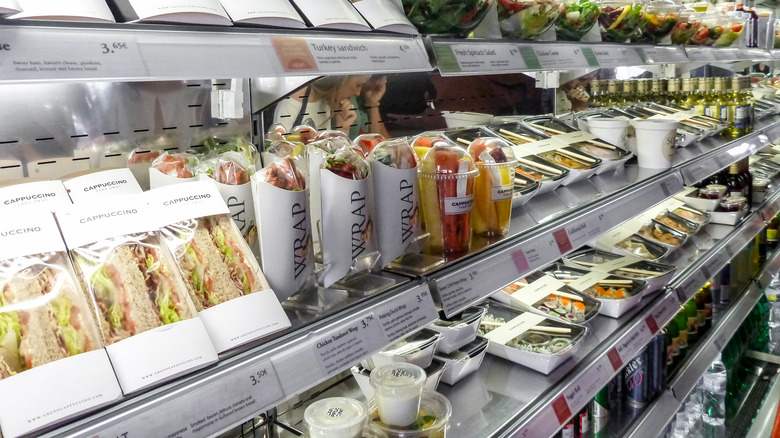Why Ready-To-Eat Foods Are More Popular Than Ever
According to a press release, a new study conducted by The Insight Partners projects that growth in the ready-to-eat food sector will increase by over 5% by 2028.
Colorado Farm to Market explains that ready-to-eat foods are items that do not require any sort of preparation before eating. Products range from deli meats to fully prepared sandwiches and from protein bars to yogurt. Part of the broader range of ready-to-eat meals are ready-to-cook meals, which include items like pasta, pre-cooked entrees such as frozen pizza, and instant oatmeal that need to be heated prior to consumption (via Frozen Food Europe).
The Insight Partners say the growth of the sector is due to lifestyle changes with more women working outside the home. Recent innovations in the product made the food items better quality, better tasting, and of more nutritional value. The pandemic spurred growth, with more supermarkets stocking shelf-stable because of concerns with supply chain disruption. The report also projects that growth in online purchasing of ready-to-eat meals will outpace traditional retailers, particularly as they reach younger consumers.
On the heels of The Insight Partners' report comes news that Tyson, one of the global leaders in ready-to-eat foods, is expanding its production facilities, opening nine new plants focused on fully cooked and ready-to-eat foods over the coming year with plans for an additional three (via Food Navigator-USA). The company anticipates its ready-to-eat business returning 10 to 12% margins — even during a recession.
Ready-to-eat meals grow in popularity
While Corporate Wellness Magazine acknowledges that while sometimes convenience trumps all in the post-work get-dinner-on-the-table scramble, reaching for a ready-to-eat meal may not be the healthiest option. They explain that the freezing process leads to blander meals, so manufacturers often increase the sodium and fat content to off-set the uninspired flavor profile. Plus, keeping the food shelf-stable requires adding preservatives. They also note that many ready-to-consume meals lack enough vegetables to be truly well balanced.
The NSW Institute of Sport also points out that menu fatigue from the limited options of ready-to-eat meals could lead to overeating on snack items. Incorrect portion sizes and food intolerances are additional concerns. Further, a study published by the British Journal of Nutrition found that people who relied on pre-packaged convenience meals daily for their nutrition had higher incidences of obesity.
However, Grandview Research notes that with vegan, gluten-free, and organic options growing, the manufacturers are responding to the demands of health-conscious consumers. NSW Institute of Sport thinks that having some ready-to-eat meals on hand — particularly for nights when you are just too busy to get a meal on the table — can be a good addition to your weekly meal planning. The key is to find nutritious varieties and limiting their use.

